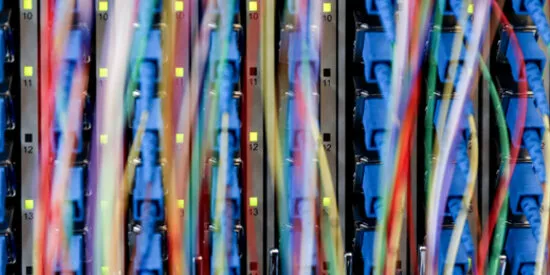
Modular Construction: Transforming the Construction Industry
By our experts Laurent Chabot, Co-Head of Infrastructure Finance, Paris, and Jean Charles Jarry, Director - Infrastructure Finance, London, at Societe Generale
The world is experiencing the largest wave of urban growth in history. Today, over half of the global population lives in cities, and this number is projected to reach approximately 5 billion by 2030(1). In this context, there is a growing demand for construction solutions that are efficient, sustainable, adaptable, and scalable. Modular construction offers a promising response to these issues.
A transformative approach within the industry
Modular construction is an innovative approach within the construction industry that involves prefabricating building components off-site in factories, which are then assembled on-site. This parallel workflow is what sets modular construction apart. The components can range from simple containers to complex structures.
Modular construction offers numerous advantages to tackle challenges associated with conventional construction processes. The first one is it’s time-saving and efficient: thanks to the combination of off-site and on-site work, project timelines can be reduced by 30-50(2) - which proves very valuable in the case of urgent building projects such as education or healthcare facilities. Secondly, it is cost-effective, thanks to lower labour costs and shorter timelines. The factory-controlled prefabrication phase enhances quality and precision. Modular construction also thrives to integrate sustainable building standards such as minimising waste and using energy-efficient materials, which answers to the growing adoption of sustainable construction policies globally. And a particularly important aspect is the adaptability and scalability. Concretely, modular businesses lease units to customers for a fixed period; at the end of the initial contract the customer may renew it or decide to terminate it. In the second case, units can be refurbished and redeployed to another customer. Hence, modular units are more flexible and minimise resources compared to traditional construction. A real asset in a changing environment.
A construction alternative in full development
The advent of modular methods is therefore a major development for the construction of tomorrow. This approach is set to grow even further with ongoing technological and digital advancements. 3D printing, Artificial Intelligence, robotics… can facilitate the design and production of cost-effective components, while targeting reduced environmental impact. These developments open numerous opportunities for alternative trends, expanding possibilities from designing to constructing.
In 2024, modular construction was globally valued at around $104.65 Bn, and it's expected to more than double by 2034(3). It gains ground all over the world. Highlights in modular construction include healthcare facilities set up during the Covid-19 pandemic: China built a 1,000-bed hospital in Wuhan in just 10 days, while in India, a 1,000-bed quarantine centre was completed in 12 days. Such projects demonstrate both the efficiency and quality of modular construction, highlighting its potential as a future solution for deployment in various sectors – notably in the field of social infrastructure, where high-quality module-based buildings can provide cost-efficient and environment-friendly alternatives to traditional construction methods.
Accompanying modular projects
Societe Generale supports the realisation of such projects by leveraging its financing and advisory services as well as its sector expertise. Modular solution is becoming preferred especially in the public sector in Nordic countries, due to its lower build cost, flexibility to extend/remove or relocate, shorter construction time and lower carbon emissions during construction, while answering to the essential needs of the local population for schools, daycare or elderly facilities and providing high environmental and building quality standards.
In this region, the bank is notably backing since 2021 the Adapteo group, the Northern European leader in modular spaces. Adapteo’s scope involves designing, building and renting modular buildings, underpinned by rental contracts, mainly with public authorities. It has the largest fleet in the Nordic region and its footprint also covers Estonia, Lithuania, the Netherlands, Belgium and Germany. In July 2025, Societe Generale acted as Mandated Lead Arranger and Hedge Provider in the €2.1 billion green financing of the company. It marks the first investment grade rating(4) in the European modular solutions sector and establishes a robust and scalable capital structure, enabling Adapteo to expand its modular fleet and scale its operations in high-demand areas such as education, healthcare, worker accommodation, and other essential infrastructure, and responding to the growing need for flexible, high-quality space across Europe. The facilities are supported by a Green Financing Framework, reflecting Adapteo’s circular business model and its aim to contribute to sustainability.
Societe Generale also supported Parmaco, a leading provider of premium quality modular buildings in the Nordics. Parmaco designs, builds and leases high-quality modular building to municipality customers for educational, healthcare and social infrastructure purposes. Parmaco has currently over 300 lease contracts in place with public sector customers, providing home for around 38,000 children in school and day cares across Finland and Sweden. Societe Generale participated in the EUR 733m refinancing of Parmaco alongside a pool of lenders composed of infrastructure debt funds and banks. The debt package aims at refinancing existing loans and fuel Parmaco's ambitious expansion into European markets.
Financing such innovative infrastructure projects reflects Societe Generale’s determination to take part in building tomorrow’s world by addressing both environmental and social challenges in key areas such as education and healthcare. Societe Generale is committed to working alongside clients who wish to bring to life new construction solutions that are fast, scalable, and sustainable.
-------------------
(1)Urbanization | United Nations Population Fund
(2)Beyond a Trend: Modular Construction as a New Building Paradigm | ArchDaily
(3)Inside the Rise of Modular Construction : Trends, Benefits & Challenges - Kodifly
(4) The “investment grade” notation refers to a credit rating that indicates a relatively low risk of default. It is assigned by rating agencies to entities or financial instruments that are considered financially stable and reliable.




